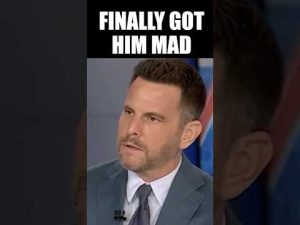The swift decision by ABC to pull Jimmy Kimmel’s late-night show off the air after his monologues about the assassination of Charlie Kirk should have surprised no one paying attention to the abuse of platform and power in Hollywood. Major station groups, including Nexstar and Sinclair, moved to preempt his program after calling his remarks “offensive and insensitive,” and the chairman of the Federal Communications Commission publicly weighed in — a rare moment when media accountability actually mattered. This was not a private controversy; it was a public reckoning for a network that has too often protected celebrity partisans at the expense of decency and truth.
Conservative voices weren’t the only ones calling for consequences, but Megyn Kelly’s reporting cut to the heart of what many Americans already suspected: Kimmel was reportedly preparing another broadside against MAGA rather than showing contrition or offering a sincere apology. Kelly rightly flagged how dangerous it is when a prime-time entertainer uses a national tragedy to smother an entire political movement with lies, and her criticism echoed the anger of viewers who are tired of being smeared for their beliefs. The network’s eventual move to suspend the show looks less like a voluntary act of conscience and more like damage control under enormous pressure.
Make no mistake: Kimmel’s lines about “the MAGA gang” and the aftermath of Charlie Kirk’s killing were ghoulish and politically reckless, and they inflamed an already raw national conversation instead of calming it. Late-night hosts have long traded on provocation, but levying political accusations from a broadcast podium — while facts about the suspect’s affiliations were still emerging — crossed a line from satire into character assassination. When the cultural elite weaponize grief to score partisan points, they don’t just alienate half the country; they deepen the dangerous polarization that leads to real-world consequences.
Sources say Disney executives scrambled to contain the fallout, convening with Kimmel and his team as affiliates threatened to drop the show and federal regulators hinted at consequences for broadcasters. That corporate panic reveals the double standard in media: when the audience fights back, even a powerful company like Disney can be nudged into action — something conservatives have been warning about for years. If executives are suddenly worried about subscribers and local affiliates, it’s proof that conservative pressure and common-sense standards still have teeth when deployed effectively.
Local station owners demanded accountability, with Sinclair explicitly calling for an apology and restitution to Charlie Kirk’s family and Nexstar refusing to air the program until standards were addressed. That demand for tangible consequences — not performative apologies clipped for social media — is what conservative communities have been pushing for against a media class that too often answers only to its own echo chamber. If networks want to preach morals, they should expect their talent to live up to them or face the market consequences of viewers voting with their remotes and wallets.
Hollywood predictably rallied around Kimmel, while protesters descended on Disney’s headquarters and calls for boycotts flew from both sides of the aisle, showing just how charged and hypocritical the conversation has become. Conservatives should stand firm: we defend free speech, but free speech is not a shield for reckless political smears on taxpayer-accessible airwaves and network platforms. Hold the talent accountable, pressure the corporate boards that enable them, and refuse to accept a culture that treats political partisanship as immunity from the standards the rest of us must follow.







